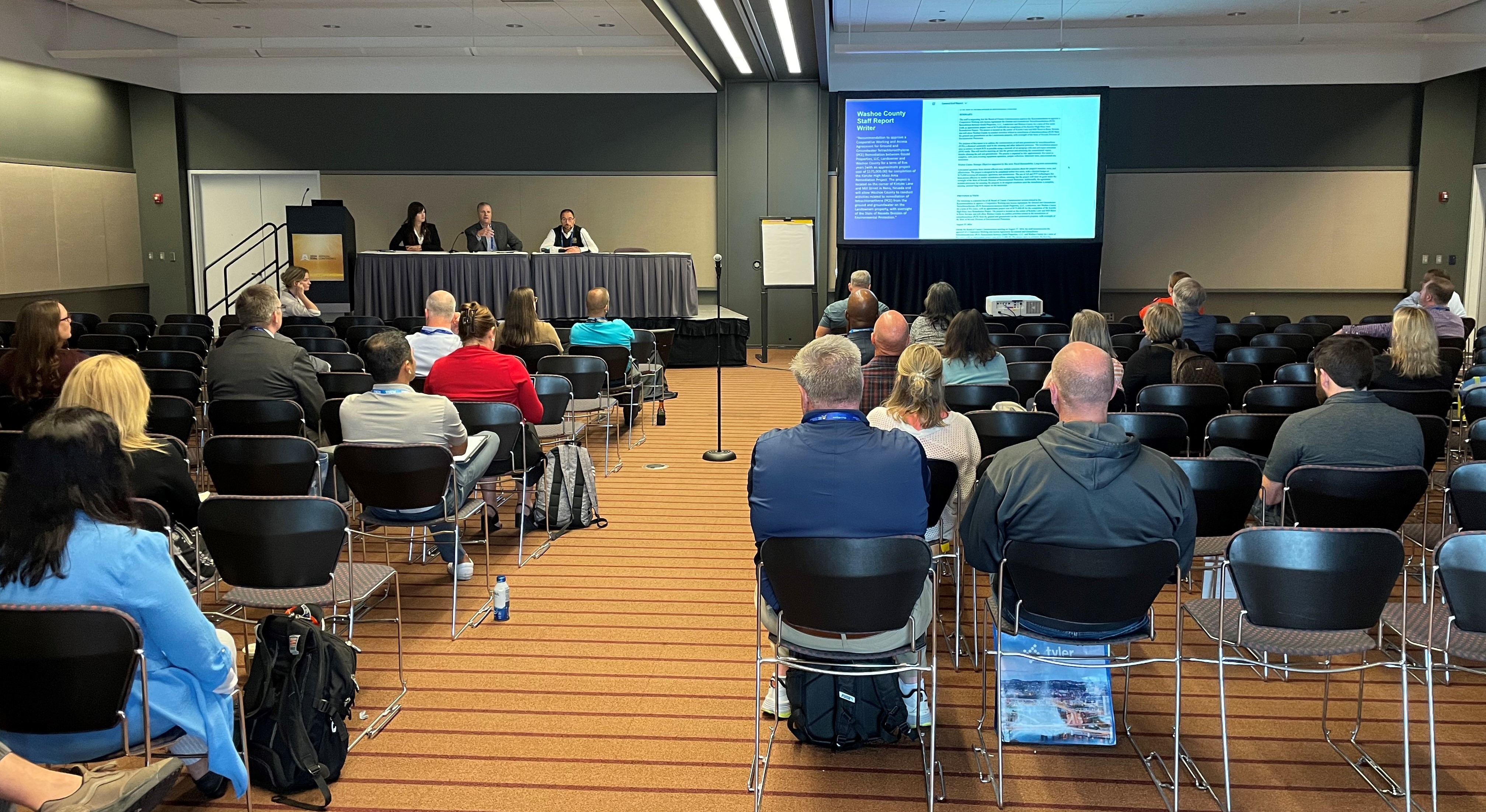
During the Risk-Averse AI: How Three Governments Use Public Data and AI to Safeguard Knowledge 2024 ICMA Annual Conference session, Dave Solaro, assistant county manager, Washoe County, Nevada, and Dr. Peter Pirnejad, city manager, Los Altos Hills, California, shared how they were able to use AI for their respective areas in a positive, impactful way. With the small steps of ensuring the information would be secure by developing an AI use policy; educating their communities, council, and staff about the importance of AI; conducting staff training on how to use the free tools; and investing in third party purpose-based tools that can be used across the organization, AI was able to impact these communities for the better.
Governments use public data and AI to solve issues both big and small. This can be seen with the use of both transformative AI and “everyday” AI. Where everyday AI is cutting the bureaucratic burden to make the workload of public servants more manageable, transformative AI directly impacts citizens by reinventing how local government serves them. Whether one intends to use AI for everyday use or more transformative purposes, AI usually ends up solving more than the problem right in front of it, and transformative and everyday AI usually end up intersecting.
An example of this can be seen in Washoe County where administrators wanted to solve the issue of PCE or perchloroethylene, an organic man-made chemical, which has been a popular solvent for dry cleaning and other purposes. During the earlier part of the century, it was widely used—and the chemical made its way through soil and into the groundwater aquifer as a result of improper disposal of solvent waste.[1] Hundreds of businesses in the area including dry cleaners, paint stores, and auto repair shops have used PCE in the past—and while most of these businesses are now gone, the damage to the environment is an issue that was attempted to be remediated with AI in the current day.
While the attempt to use AI to help solve this particular issue didn’t pan out, the use of AI was able to solve another issue, i.e., archiving important documents like contracts, meeting minutes, etc. This both helps with staff reports, as a major referencing system, and with engaging commissioners by providing information to elected officials easily so that they may be more proactive in their involvement. By providing quick access to relevant information and automating complex research tasks, the use of AI goes from everyday to transformative as it will enable officials to make more informed decisions and better serve the community.
Another example of how transformative AI and everyday AI can either overlap or lead into the other can be seen in Lost Altos Hills. This city uses a knowledge assistant that provides all details related to the Matadero Creek Restoration and Bank Stabilization Project, which includes discussions, actions, funds, and votes, as well as date and title of document for easy reference. The program can also generate a multi-year funding summary detailing expenditures on major projects like erosion control. This is an example of everyday AI also being transformative. “By leveraging AI, cities can enhance decision-making processes, streamline operations, and provide more personalized and efficient services to their communities.”[2] By simply streamlining the workload that public workers devoted to the project, the use of AI went from everyday to transformative.
New, Reduced Membership Dues
A new, reduced dues rate is available for CAOs/ACAOs, along with additional discounts for those in smaller communities, has been implemented. Learn more and be sure to join or renew today!
